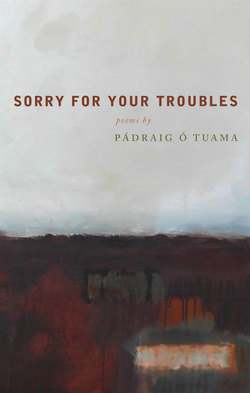Читать книгу Sorry For Your Troubles - Pádraig Ó Tuama - Страница 12
На сайте Литреса книга снята с продажи.
ОглавлениеS o r r y f o r y o u r T r o u b l e s
One time I sat in a comedy club in Belfast. The comedian, a gay British Asian, had the crowd in the palm of his hand. He was self-deprecating, flirtatious and hilarious. Then he said, ‘What about the troubles, then? Why do you people call it that? It sounds so twee. It sounds like a spot of bother.’
Few people laughed. On the one hand, it was understandable that he would say what he said. Indeed, many peace practitioners now shy away from the word ‘troubles’ because of its diminutive syntactical connotations. I think that the comedian didn’t know that in a room of 150 people, it is inevitable that there are people who were troubled by the troubles. Does it matter what you call something if that something is awful? The answer is yes. But the answer is also that words are never the final word.
‘Don’t call this war in Ireland the troubles,’ a Republican man once said to me. He said, ‘Some English bastard made that word up, I’m sure.’ ‘Do you know that for a fact?’ I asked. ‘No,’ he said, ‘but you can just tell.’
Both of these stories are stories, in some way, about English words and English-speaking people on Irish soil in Irish history. The smaller nation always lives in the shadow of the larger. The Irish word for shadow, scáth, is also the word for shelter. We live in the shadow and we live in the shelter of each other.
One time, I was getting a train from Dublin to Cork for a funeral. My grandfather had died as a result of an illness. I bumped into my friend Tony. ‘Where are you going?’ he asked. ‘My granda’s funeral,’ I answered. ‘Sorry for your troubles,’ he said, and he moved on. He said it without thinking. It is what you say. In Irish, there isn’t a specific word for bereavement. In English, the word ‘bereave’ means to deprive of, to despoil, to seize or rob. There isn’t a word for this in the Irish language. Our way of saying bereavement is trioblóid, which, anglicised, is troubled. To be bereaved is to be troubled by grief.
We say ‘I’m sorry for your troubles’, or ‘Is olc liom do bhris’. We use troubles or breaking for words of bereavement. It describes the experience. We say ‘comhbhrón o chroí’, meaning heart-felt-shared-sadness.
Is it Northern Ireland? Is it the north of Ireland? Tribe is demarcated and politics are discerned on simpler things than this. In the process of remembering these deaths and these bereavements we don’t even have the agreed language on the name of the place where these troubled things happened. Between 1969 and 2001, 3526 people lost their lives in what has come to be known as The Troubles. This is roughly 2% of the population of [the]north[ern][of]ireland. In 2010 it was estimated that 107,000 people suffered some physical injury as a result of the conflict. The statistics people estimate that up to 500,000 people are affected by grief, ailments, or trauma following the troubles.
If we called it The Bereavements would we weigh the number more heavily?
And me? I’m just a Corkman writing poems about histories I didn’t share. ‘What’s it like for you to live in this foreign country?’ a Belfast Protestant man asked me once. That same morning a Catholic man had said to me, ‘I love your city, Belfast and Cork are the two best cities, but those Dublin fellas? They’re wankers.’ Perhaps we are all always local and foreign to each other. Neighbour, stranger and enemy.
In the name of the neighbour
And of the stranger
And in the shadowed shelter of each other.
Amen.
One time I sat in a room with a Catholic woman whose dad had been shot dead in an ambush. She’d heard that one of the ambulance men, a Protestant, had never again been right after his shift that day.
‘There’s many as weren’t killed that still died,’ she said. And she was right.
